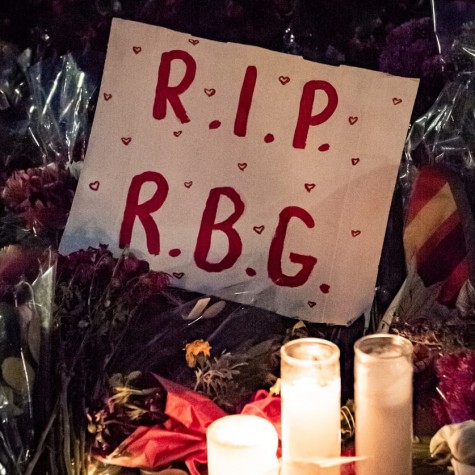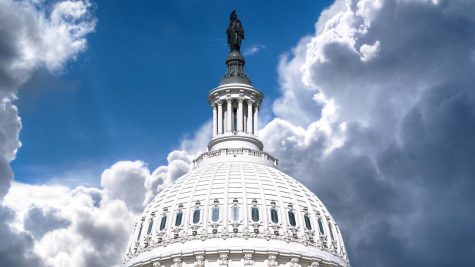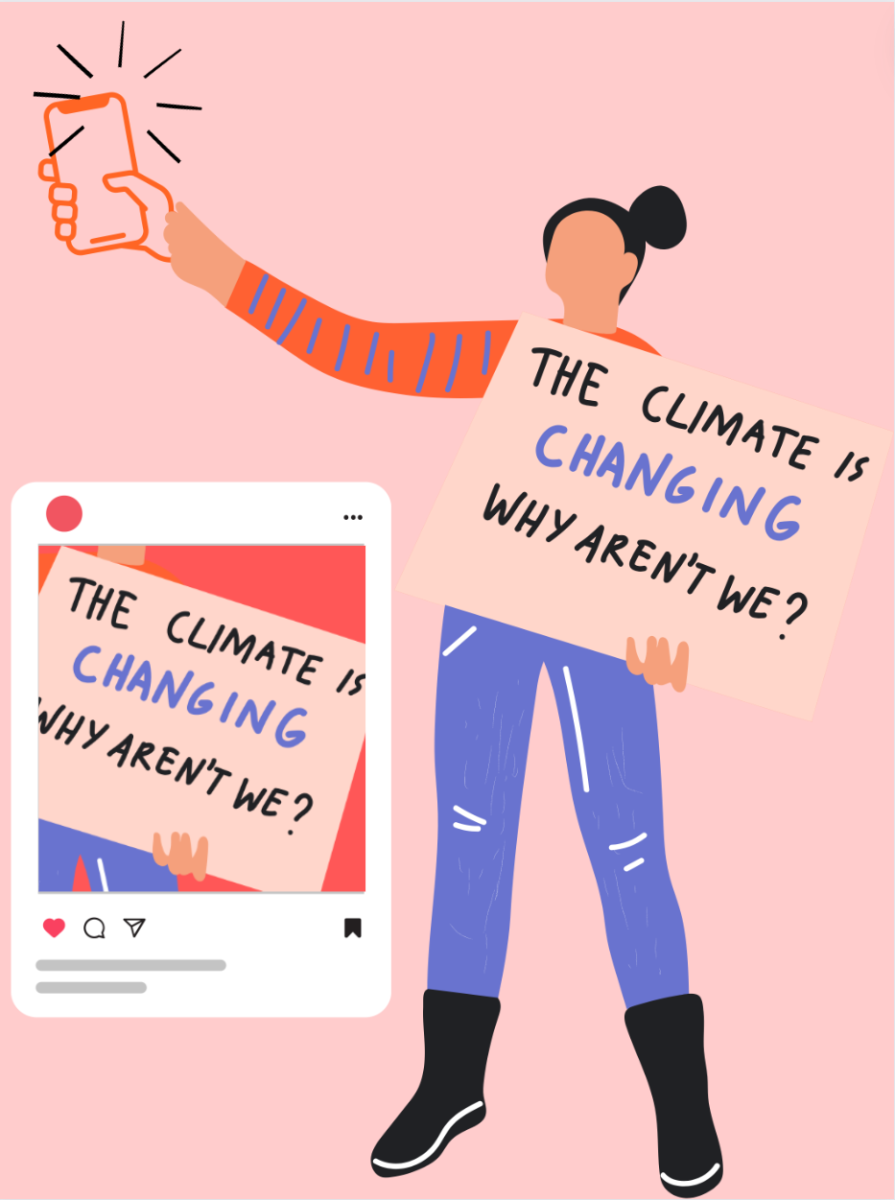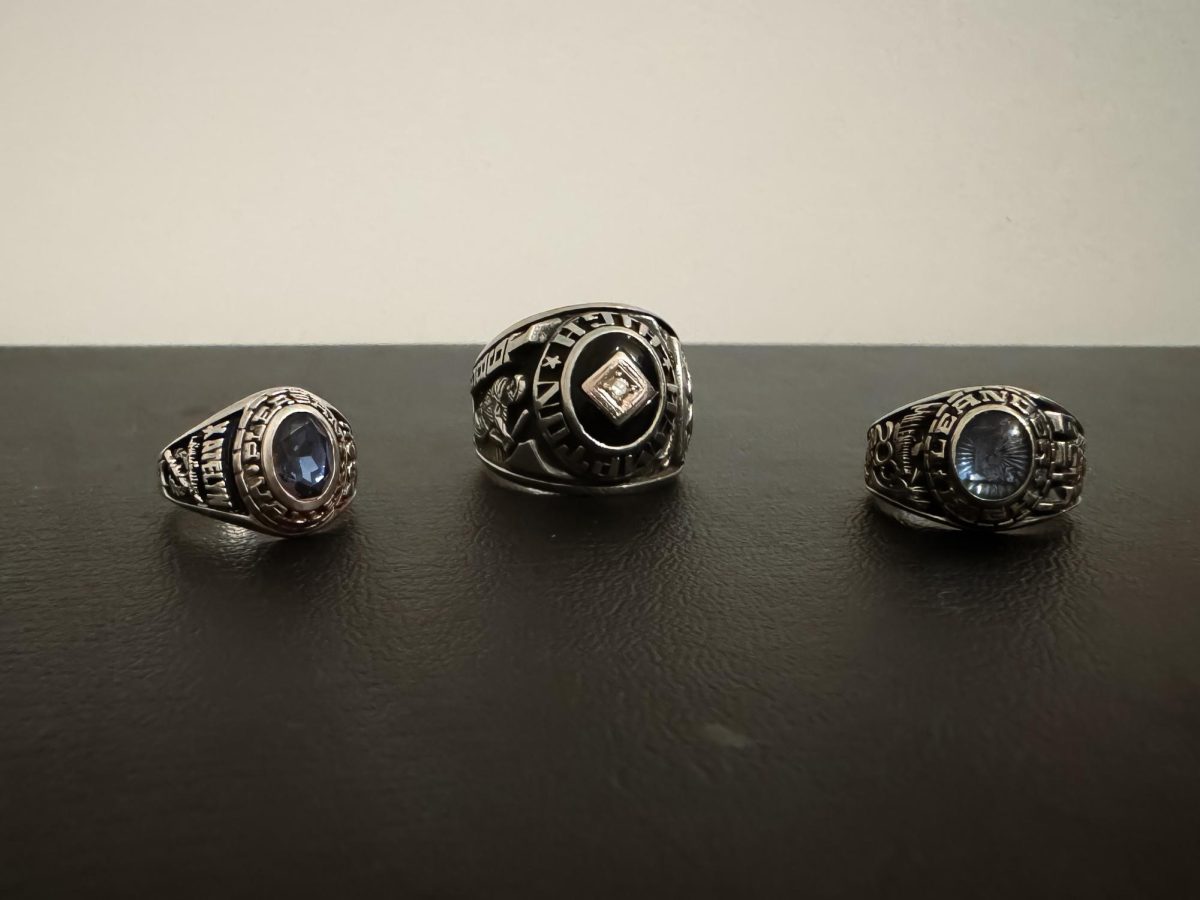Washington D.C. is a mess. Our bipartisan government always seems to be at war, and unfortunately, the death of Ruth Bader Ginsburg and the search for her replacement has done nothing to help deliver peace.
2020 is not the first election year where there has been an open seat on America’s highest court. In our country’s history, it has happened 29 times. Every single president holding office in any of those times made a nomination, but only 19 of those 29 nominees, mostly recently in 1968, were inducted into the Supreme Court before the election.
Since 1968, however, the process of appointing a Supreme Court justice during an election year has followed the guidelines of the Thurmond Rule.
The Thurmond Rule, unwritten and not legally binding, states that in election years, judicial nominees should not be confirmed in the months before the election. The rule was created in 1968 when Senator Strom Thurmond, a South Carolina Republican, prevented Lyndon B. Johnson’s nomination of Justice Abe Fortas as chief justice.
Since the Thurmond Rule is the way nominations have been dealt with in the last 50 years, there is absolutely no reason why it should change.
While some may argue to follow the tradition set from the other 192 years, it simply can not be done. It’s clear America is an ever evolving country, and as the country continues to change, so does the process of inducting Supreme Court nominees.
In our recent history, waiting until after the election has proven to be the best approach for America, and because America is a country set on growth, moving backwards to follow a past tradition is not the brightest idea.
In 2016, the last time there was an open Supreme Court seat during an election year, Senate Majority leader Mitch McConnell refused to acknowledge President Obama’s nomination of Merrick Garland, saying the president elected in November later in the year should be the one to nominate the new justice. Now, he is saying the opposite.
It is a double standard, not to mention hypocritical, for Republicans to say the election winner should nominate the new justice in 2016, but to say and do the opposite now.
Senior Courtney Mohr believes there is a lot of hypocrisy with nominating a new justice before the election. “Republicans wouldn’t allow Obama to nominate a new Supreme Court justice 11 months away from his term ending,” Mohr expressed. “Lindsey Graham went on the record and said to hold him accountable if this happens during Trump’s presidency, and [now] they’re going against their own word.”
The double standard roots itself in the spiteful purpose of Trump’s rush to nominate. It’s no secret that in many states Biden leads Trump in the polls, and putting Amy Coney Barrett on the Supreme Court would turn the court conservative for the foreseeable future creating an ally for Trump. An ally who Trump hopes will help boost the number of votes he receives in November.
The Supreme Court is not, and should not be, an ally to any president. Justices are not tools for the president to use, and the power the justices possess are to help the people of this country – not for making decisions that will benefit the president’s political agenda or campaign. Doing so is not only violating judicial independence, but is also just plain wrong.
Only adding to why the nomination to fill Ginsburg’s seat should wait until after the election is the fact the American people want to wait. A series of 12 different polls have averaged to find that 52% of Americans want the election winner to choose the new justice while 39% want Trump to do it now.
That is a 13 percent difference: a 13 percent difference that should not be ignored by our politicians. The government serves the people, and the best way to serve the people now, is by listening to, and doing, what they are asking.
As if the process to fill the seat wasn’t complicated enough, Trump has already announced his nominee: Amy Coney Barrett. It is obvious that Barrett is an impressive candidate; her work history at the University of Notre Dame and the 7th Circuit Court of Appeals proves that.
Her reputation as a person is also quite solid and respectable, but that’s completely different from her reputation as a judge: a reputation that will have negative consequences for America if she’s inducted.
Barrett’s records prove that she takes a pro-life stance in the abortion debate. She’s voted in two cases concerning abotion, both times in favor of more restrictions. Her history also shows that she’s willing to overturn the ruling of Roe v. Wade: a case that gives women the right to choose whether or not to have an abortion.
Also a devout Catholic, Barrett would bring more religion into the government. While other members of Congress are religious, they do not make their decisions based on their religious beliefs like Barrett does.
Mohr believes Barrett’s use of her religion will be detrimental. “Religion has no place in politics because the US has no official religion,” she expressed. “Unfortunately her very conservative views on gender rights and bodily autonomy stem from that, and it is leading [our country] in a negative direction.”
Senior Abby McKay does not necessarily believe Barrett is the worst choice, but still agrees she’s not the best person for the job. “I would prefer someone who would continue to fight for all Americans, similar to what RBG did,” she explained.
While Barrett’s resume may be impressive, it doesn’t make up for the fact that if inducted, she will reverse many of the rights Ginsburg worked so hard for in her lifetime. If America wants any chance at achieving gender equality, then they shouldn’t give power to someone intending to slow its progress.
America needs help, but it will have to wait because Judge Barrett is not the woman to provide it.











![By UnknownUnknown author [CC BY 3.0 (https://creativecommons.org/licenses/by/3.0)], via Wikimedia Commons (photo citation)](https://spartanshield.org/wp-content/uploads/2018/10/brett-kavanaugh-getting-sworn-in-475x475-1539639254.jpg)







